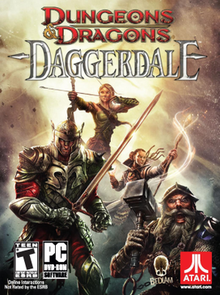A ton of people are concentrating on the impacts of messing around like Dungeons and Dragons (D&D). I’ve accumulated a rundown from some extraordinary analysts and emotional wellness experts for your benefit and satisfaction. You can even find halfling names online. Here is a rundown of 12 innate advantages of assuming a part play game like D&D:
D&D is a pleasant movement delighted in with others.

As a matter of first importance, everybody needs a well-being work/play balance in their lives. Not exclusively can combining to play D&D give fun incitement and space to act naturally, however you’re doing it with others. Together, your party participates in inventive play where you co-make experience stories.
Pretending permits people to play as another person.
People utilize their creative minds to make a person that fits various paradigms: the solid hero, the mindful healer, or the secretive maverick for instance. Every choice the player makes about the person could meet a genuine need-like expecting to chip away at trust in improvised talking.
D&D is a common movement that unites individuals.
At the point when a gathering of companions has a common movement or normal interest, they are reinforced together. It makes it simpler for them to remain associated and foster all the more long-haul connections. So it’s essentially a fast manual for making long-haul fellowships.
D&D permits people to see through another’s eyes.
On the off chance that you decide to play a bantam race, say, the Dungeon Master (DM) could conclude that there are marks of shame inside that world against dwarves. Hence the player may encounter what it resembles firsthand to be abused. This might decipher as a true ability in permitting us to be more mindful of what we mean for other people.
The hypothesis of the brain is reinforced.
This is the agreement that our musings, convictions, and wants are unique concerning other people. The hypothesis of the brain generally creates as we grow up, however here and there we could all utilization a little practice update. Not every person in the D&D party will have a similar coalition (great, malevolent, impartial) as you. Moreover, not each of the characters you cooperate with on the planet will have similar sentiments about occasions occurring. This is a great idea to recall as we explore genuine contrasts with others-including at work, school, governmental issues, or just life choices.
Practice enthusiastic articulation.
Rehearsing enthusiastic guidelines (regulating one’s passionate state) and passionate articulation (how you express your sentiments) in an adult way is important for the game. Pretending a furious person takes diving into sympathy for what your person may be feeling and how they may react like venturing into another person’s perspective. However, once in a while it does not pretend! Once in a while, you as a player become furious about somebody’s choice. The construction of D&D permits you to communicate your feelings or work on paying attention to other people while they are vexed.
Side note: all connections include a progression of bursts and fixes to keep up with. Consenting to keep on playing D&D implies people should rehearse ways that their person may excuse one more person to keep on being in a similar party. Great practice for making fixes, in actuality!

